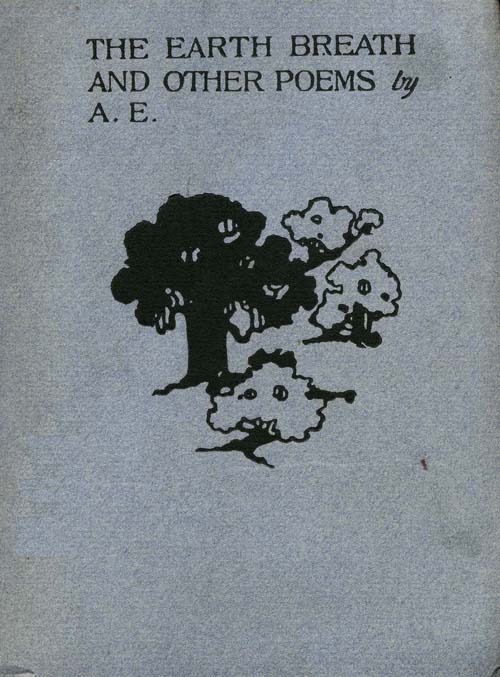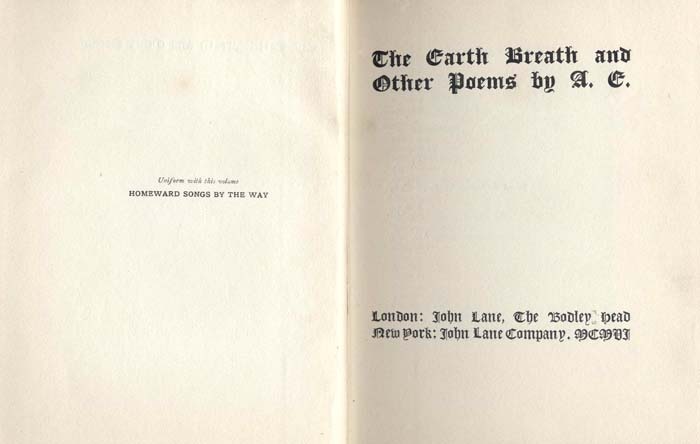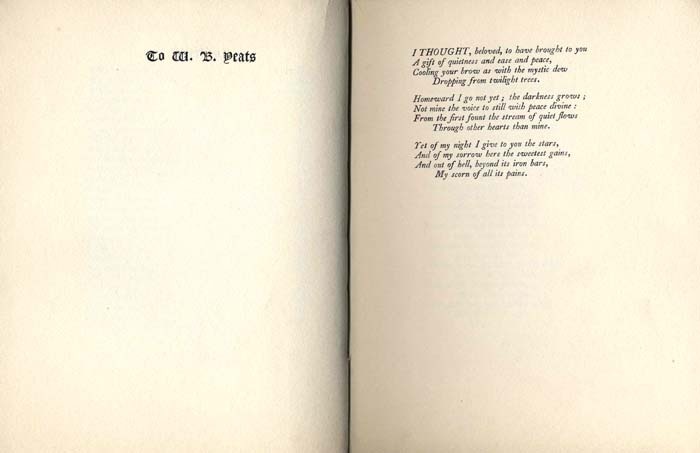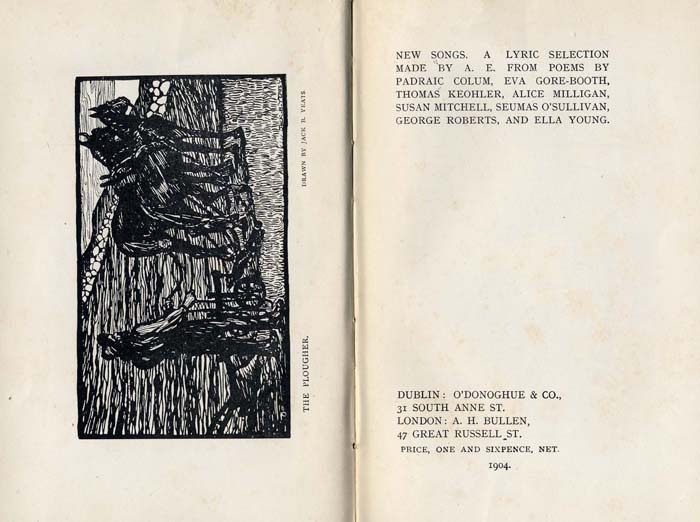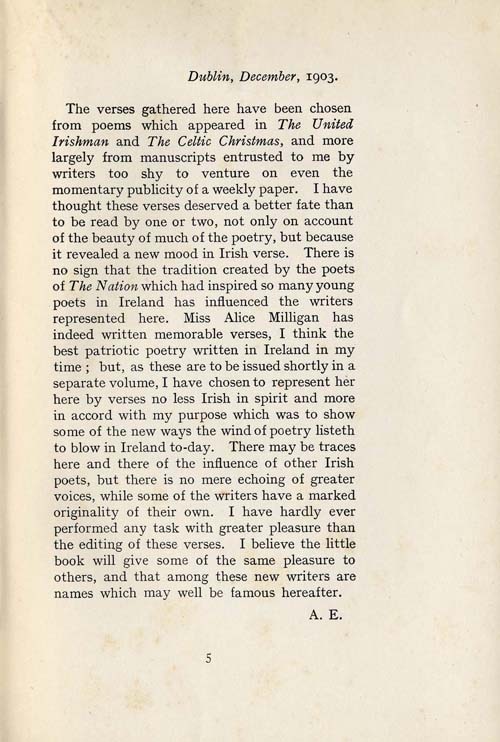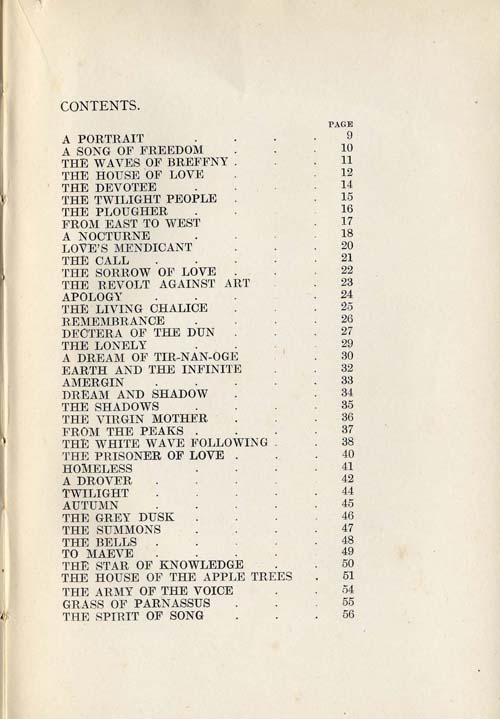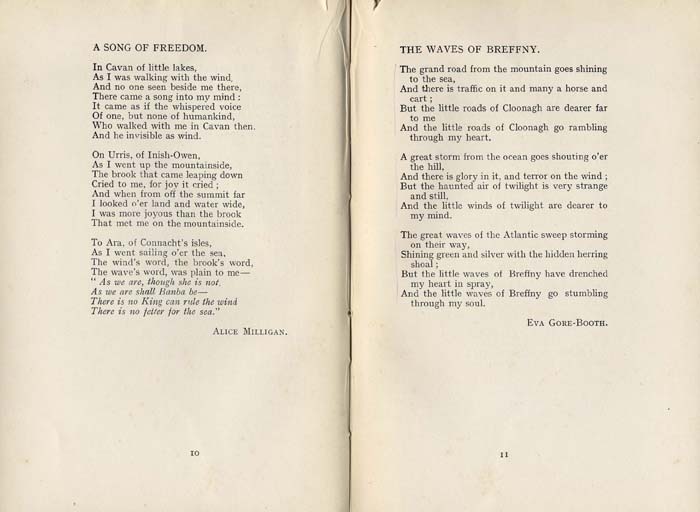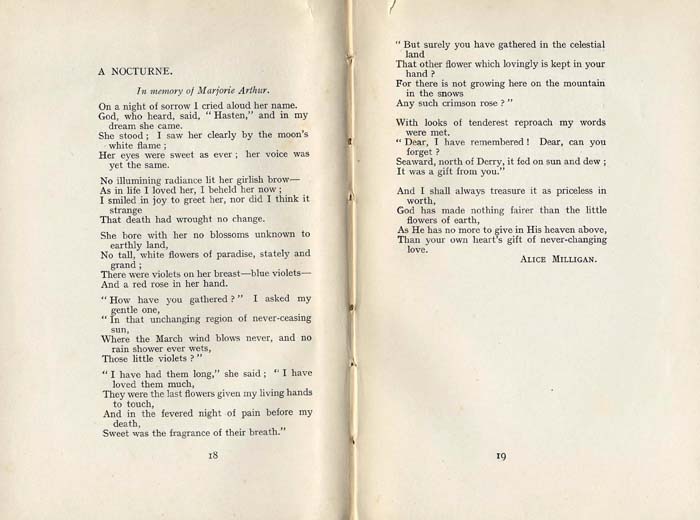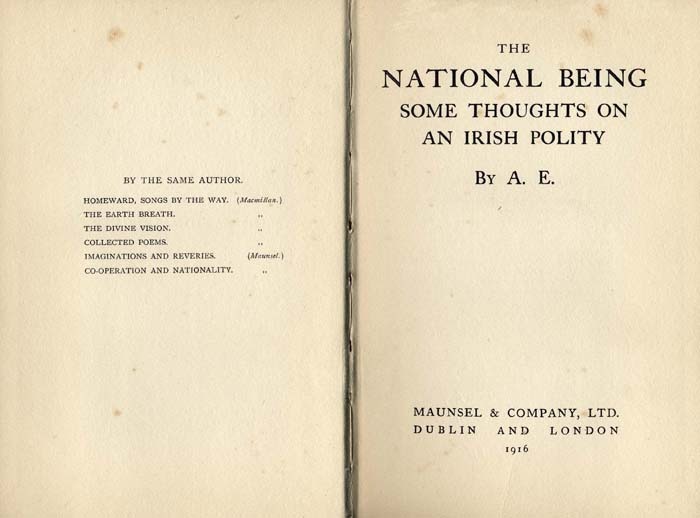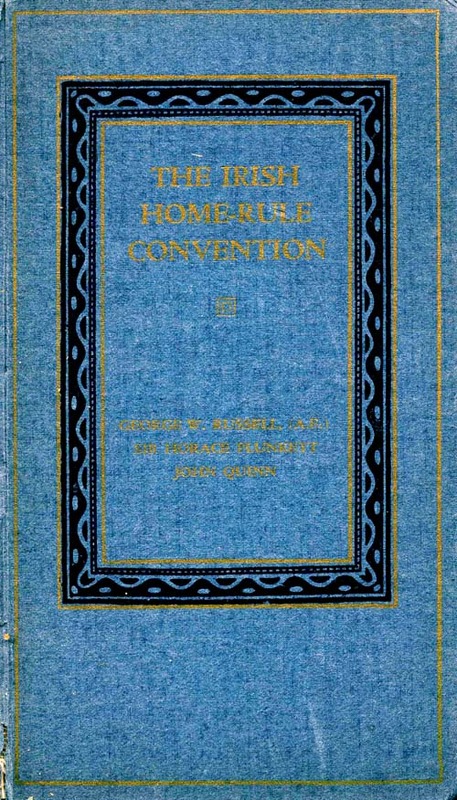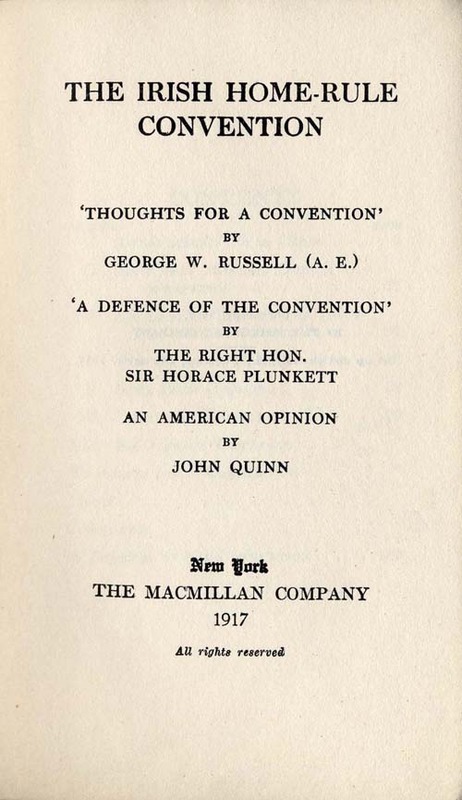Irish Identity
Among the most influential figures in the Irish Literary Renaissance of the late nineteenth and early twentieth centuries was George William Russell, who published under the pseudonym AE. An active poet and playwright, Russell also wrote political commentary and edited a variety of publications including The Irish Homestead, a journal that encouraged interest in Irish crafts, arts, writing, agriculture and home economics.
Russell first met Yeats while attending the Metropolitan School of Art in Dublin in 1884. Russell and Yeats both became actively involved with the Theosophical movement, and Russell’s first book of poems, Homeward: Songs by the Way, published in 1894, reflected his Theosophical interests.
George William Russell, 1867-1935
The Earth Breath and Other Poems by AE
London: John Lane, 1906. 2nd edition.
(SPL) PR 6035 .U7 E2x
The Earth Breath and Other Poems appeared three years later in 1897. Russell’s strong interest in Irish history and carving out a national identity are evident throughout the volume. His interest in ancient spiritual initiations is also apparent. He came to believe that an avatar (a mortal incarnation of a higher being) was about to appear in Ireland. Henry Summerfield writes:
[Russell’s] new concerns are apparent in The Earth Breath and Other Poems in which he relates life and pain on earth to their meaning in the light of the godlike nature of man’s hidden essence. . . . in the noble monologue “The Man to the Angel” he draws a fine contrast between the suffering, imperfect human and the flawless, yet limited spirit who has never fallen.
Yeats showed all of these interests and greatly admired Russell’s poetry and his visionary capabilities.
This volume is a second edition of The Earth Breath and Other Poems.
New Songs: A Lyric Selection Made by AE from poems by Padraic Colum, Eva Gore-Booth, Thomas Keohler, Alice Milligan, Susan Mitchell, Seumas O’Sullivan, George Roberts, and Ella Young
Dublin: O’Donoghue & Co., 1904
(SPL) PR 1175 .N38 1904
In 1904, Russell edited a collection of contemporary Irish poetry under the title New Songs.
Like Yeats, Russell worked hard to promote Irish writers and their works, some of whom are represented in this volume.
George William Russell, 1867-1935
The National Being: Some Thoughts on Irish Polity by A E
Dublin: Maunsel & Company, Ltd., 1916
(SPL) DA 960 .R78 1916
As editor of the Irish Homestead, Russell developed a progressive political position of combined economic and political democracy which he set forth in The National Being (1916). An examination of the fundamentals of democracy, The National Being was sold around the world as a nationalistic treatise and became Russell’s most influential book. It sets forth the basic tenets to which Yeats and Russell subscribed in their efforts on behalf of an Irish national movement in the late nineteenth and early twentieth centuries.
John Quinn, 1870 -1924
The Irish Home-Rule Convention: An American Opinion
New York: Macmillan, 1917
(SPL) DA 962 .Q6
John Quinn first met the Yeats family in 1902 while visiting Dublin. Quinn was a rising Irish-American lawyer. He became associated with the Yeats family through John Butler Yeats, W.B. Yeats’s father, and his brother, Jack B. Yeats, who showed him around Dublin. Quinn was also the lawyer and main financial supporter of The Little Review. He served as the unhappy defense lawyer for the magazine’s editors in the famous trial regarding the censorship of James Joyce’sUlysses. Quinn responded to their kindness by purchasing a dozen paintings and commissioning many more. Quinn also traveled to the West and met with Lady Gregory, George Moore and Edward Martyn. Quinn wished to set up an American lecture tour as well as acquiring American copyrights to produce small private editions of prominent Irish authors.
Quinn was a long-time benefactor of the Yeats family. Quinn organized W. B. Yeats’s first American tour in 1903-1904, and in 1907 his father left for New York where he remained under the watchful eyes of John Quinn for many years. While on another American lecture tour in 1912-13, Yeats made arrangements to sell manuscripts to Quinn, who in turn would give the payments to J.B. Yeats in a manner that preserved him from knowing the source of the money. When J. B. Yeats died in 1922, Quinn was at his side.
An Irish-American, Quinn worked hard for the responsible Irish nationalist movements. Among his efforts was this volume published in 1917 advocating the Irish Home-Rule Convention.

